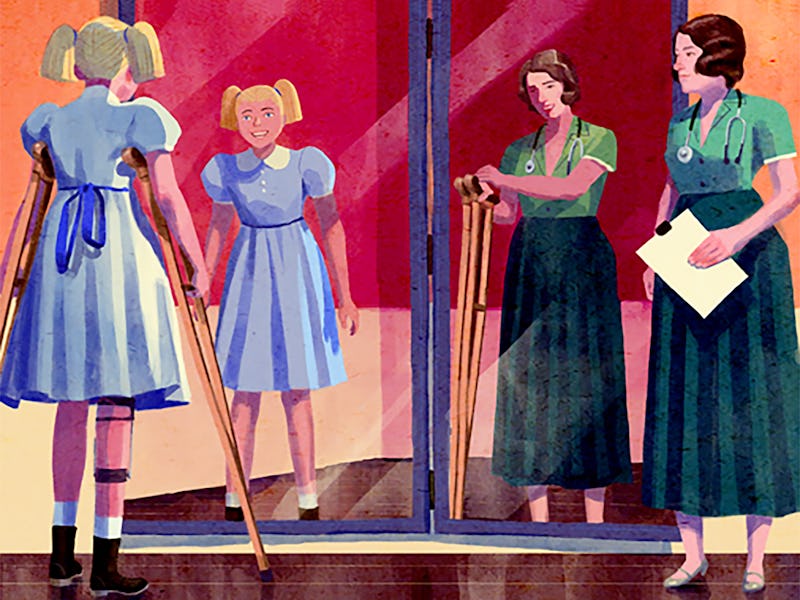Dame Jean Macnamara: Pioneering polio doctor planted seeds to help treat coronavirus
The life of Dame Jean Macnamara shows science can prevail against unknown, terrifying viral threats.

Instead of getting up to their usual April Fool’s tricks, today’s Google Doodle honors Dame Annie Jean Macnamara on what would be her 121st birthday.
An Australian doctor, Macnamara's tireless research contributed to the 1955 development of a successful polio vaccine. The vaccine has helped eliminate polio from much of the world, saved over half a million lives, and prevented over 13 million cases of paralysis.
And as our world faces a different viral outbreak, Covid-19, Macnamara's pioneering work shows exactly how science can prevail again deadly diseases.
Dame Jean Macnamara was born Annie Jean Macnamara in Victoria, Australia in 1899. As a teenager during World World I, Macnamara said she felt a strengthened resolve “to be of some use in the world.”
She graduated medical school at age 23, and joined the Royal Children’s Hospital in Melbourne, Australia, a year later. Macnamara arrived in Melbourne right as polio exploded across the city.
Considered one of the most fearsome diseases of the 20th century, polio infects the spinal cord and can result in paralysis or death. Until the 1950s, polio cases surged throughout the world every summer. Many people who got polio recovered quickly; but others were disabled for life.
Polio pioneer
Polio survivors say that, before the vaccine, people had to self isolate, stay home, and avoid crowded spaces — similar precautions to those we must all now take against the novel coronavirus, Covid-19.
"Each community had a quarantine officer and that quarantine officer would come confirm the presence of what was felt to be probably the presence of polio and put a quarantine sign on the house," Lowell Peterson, told reporters at WBAY.
"Schools were closed, swimming pools were closed, swimming lakes were closed. You were advised to stay away from crowds and theaters."
A young boy recovering from polio uses leg braces and crutches to walk in 1956.
At the children’s hospital, Macnamara bore witness to the thousands of people suffering polio-induced paralysis. Immersed in a world plagued by this ruthless virus, Macnamara dedicated her life to developing novel rehabilitation treatments and other therapies, including splints and restraining devices to help people get back their mobility.
Macnamara was also an early pioneer of using immune serums to treat polio infections, a precursor to the convalescent serums that are currently being tested as treatments for Covid-19. But while science embraces such technologies now, at the time, Macnamara’s therapy was widely rejected by her colleagues.
In collaboration with future Nobel Prize winner Macfarlane Burnet, Macnamara discovered there was more than a single strain of the polio virus in 1931 — an insight that informed the development of the polio vaccine, decades later.
Macnamara was appointed Dame Commander of the Order of the British Empire in 1935.
She died in 1968 of cardiovascular disease.
Vaccine hope
In part because of Macnamara's steadfast work, polio is considered one of the great vaccine successes, and three strains of the virus are now eradicated.
Sydney-based artist Thomas Campi illustrated today's Google Doodle and hopes the drawing will ignite people’s passion for research and positivity in these difficult times.
"There's always hope—at least that is how I see life,” Campi told Google. “Without pain, there is no happiness. It's a difficult balance sometimes, but it's worth it.”
As Covid-19 continues to sweep the globe, Macnamara reminds us that the sharpest scientists are fighting to prevent the spread, and save lives.
Happy birthday, Dame Jean Macnamara!